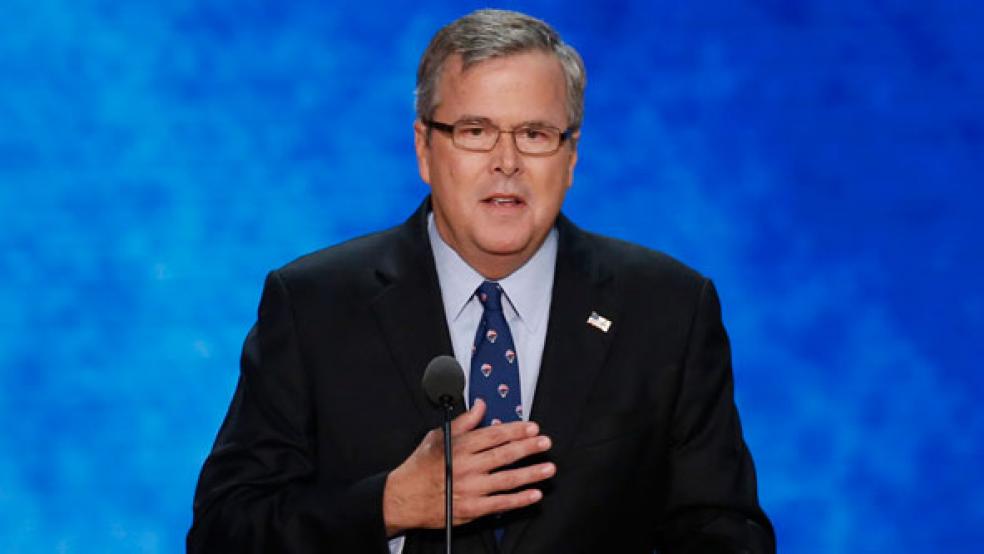Former governor Jeb Bush is still burning up the track as the Republicans’ premier fundraiser, but the presidential aspirant is beginning to lose altitude in his home state of Florida and struggling to stay abreast of Wisconsin Gov. Scott Walker and other contenders in other key battleground states.
Bush leads the GOP field in Florida with 24 percent of the vote, according to a new Quinnipiac University poll, ahead of Walker with 15 percent and Sen. Marco Rubio (R-FL) with 12 percent. But the former two-term governor is down from 32 percent in February. And there are growing signs that his moderate views on immigration reform, Common Core educational standards and other cutting issues may be hurting him with his party’s conservative base.
Related: GOP 2016: Scott Walker Has the Lead, Jeb Bush Has the Money
Hypothetical matchups in two other swing states show Bush at 8 percent in Ohio, behind favorite-son Ohio Gov. John Kasich with 20 percent, and Walker, Sen. Ted Cruz (R-TX) and former Arkansas governor Mike Huckabee with 9 percent each. In Pennsylvania, meanwhile, Walker leads the field at 14 percent, followed by physician Ben Carson, former Pennsylvania senator Rick Santorum and Bush at 12 percent apiece.
“Gov. Scott Walker continues to be the surprise in the early part of the 2016 campaign,” said Peter A. Brown, assistant director of the Quinnipiac Poll, in a statement. “We’ve got a long way to go till Iowans caucus next winter, but the Wisconsin governor has climbed into the first tier of contenders along with establishment favorite Jeb Bush, who can’t be happy with his numbers today.”
Bush has yet to officially declare his candidacy, but he reportedly is on track to raise tens of millions of dollars in campaign funds by this spring – so much so that he recently urged his wealthiest backers to limit their contributions to $1 million for the time being.
The Washington Post reported this week that Bush has given his tacit endorsement to a new group that can collect unlimited amounts of money in secret, part of a strategy by his advisers to create a robust external political operation before Bush formally announces his candidacy. The nonprofit group, Right to Rise Policy Solutions, was quietly established in Arkansas in February by a friend and former Bush staffer, according to the report.
Related: Cruz Could Ride ‘Unlikeability’ All the Way to the White House
While Bush in many ways can boast a conservative record as governor, he is viewed with suspicion by many conservative groups and voters. The Weekly Standard this week described him as a “self-conscious, deep-dyed conservative who for the moment feels the need to look like a moderate, especially before an admiring press and in the company of the wealthy Republicans who these days are his constant companions and marks.
”Yesterday, Bush appeared to back away from earlier comments about Indiana’s highly controversial “religious freedom” law, telling a small group of potential supporters in Silicon Valley that a “consensus-oriented” approach would have been better at the outset, according to The New York Times.
Bush seemed to tone down his comments on Monday night in an interview with the conservative radio host Hugh Hewitt. In that interview he praised Gov. Mike Pence of Indiana for doing the “right thing” and said that the new law was similar to one in Florida and to a law signed by President Bill Clinton in 1993.
Top Reads from The Fiscal Times:





